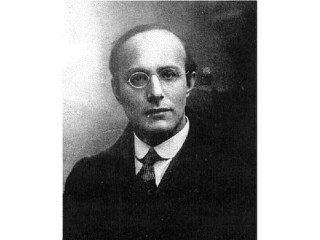
Karl Polanyi biography
Date of birth : 1886-10-25
Date of death : 1964-04-23
Birthplace : Vienna, Austria
Nationality : Hungarian
Category : Science and Technology
Last modified : 2011-08-31
Credited as : Economic historian, laissez-faire capitalism ,
Born in Vienna on Oct. 25, 1886, Karl Polanyi was the son of a prosperous entrepreneur. The family fortune suffered reverses, however, and while attending the University of Budapest, he had to serve as a tutor to support his family. His problems were intensified by radical political activities which led to his banishment. He completed his education and received his degree in law at Kolozsvar in July 1909 and was called to the bar in 1912.
Polanyi was general secretary of the Radical Citizens party of Hungary for a short time and served in the army during World War I. The close of the war found him gravely ill, and he was taken to Vienna to convalesce. There he met and, in 1923, married Ilona Duczynska. From 1924 to 1933 he wrote on world affairs for two periodicals. With the rise of fascism, Polanyi emigrated to England. He lectured and conducted tutorial classes for the Workers Educational Association and the extramural programs of Oxford University and the University of London (1937-1940). He also made tours in the United States, lecturing on international affairs. He was resident scholar at Bennington College, Vt. (1940-1943), and during this period wrote The Great Transformation (1944).
Polanyi was a visiting professor at Columbia University (1947-1958). Even after his retirement, his productive work continued. Out of the Interdisciplinary Project on Economic Aspects of Institutional Growth, which was the joint responsibility of Polanyi and Conrad M. Arensberg, came Trade and Market in the Early Empires, a book that greatly influenced the course of economic anthropology as well as economic history. Polanyi founded the journal Co-Existence as a means of stimulating objective and scientific discussion of the problems of peaceful coexistence. The first issue was published shortly after his death on April 23, 1964.
















